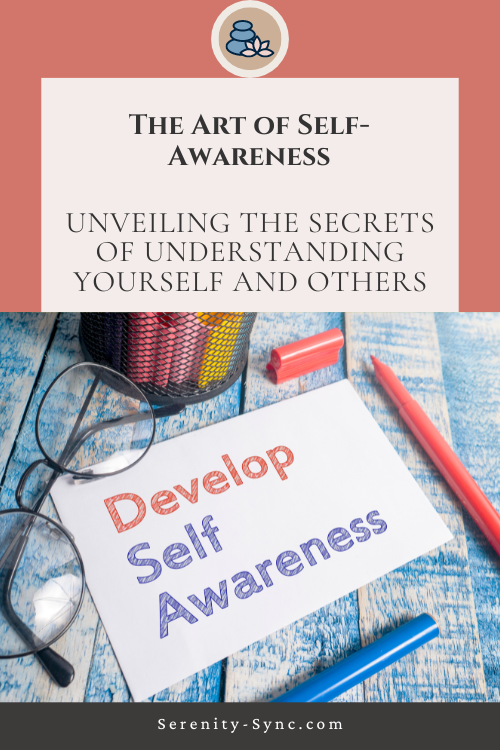In Brief
Self-awareness is a vital skill that allows individuals to objectively evaluate themselves, manage their emotions, and align their behavior with their values. This article explores the various aspects of self-awareness, including its definition, importance for leaders, benefits of private and public self-awareness, research findings, and the overall impact on happiness and relationships. By delving into ten examples of self-awareness, readers will gain insights into recognizing and modulating emotions, building positive relationships, and treating others with kindness and respect. Let’s dive into this post about example of self awareness!

Your Free PDF version of this blog post Awaits – No Strings, Just Click and Enjoy! 🌸🎁
Introduction
Self-awareness is the conscious knowledge of one’s own thoughts, feelings, and behaviors. It involves understanding your strengths, weaknesses, values, and beliefs. This ability to reflect on oneself is crucial for personal growth and development. In addition, self-awareness plays a significant role in leadership, as it allows leaders to understand their impact on others and make informed decisions.
Private Self-Awareness: The Key to Understanding Yourself
Recognizing, Monitoring, and Modulating Emotions
Emotions have a profound impact on our thoughts and behaviors. By recognizing and understanding our emotions, we can better manage them and respond appropriately to different situations. Developing emotional intelligence is essential for self-awareness, as it allows us to navigate our emotions effectively and build healthier relationships. Managing stress is also a crucial aspect of self-awareness, as it helps us maintain emotional well-being.
Resolving Internal Conflicts
Our past experiences shape our beliefs and perceptions. Acknowledging these influences is vital for resolving internal conflicts and overcoming limiting beliefs. Cultivating self-acceptance and self-compassion allows us to embrace our true selves and make choices aligned with our values.
Aligning Behavior with Values
Identifying our personal values provides a roadmap for aligning our behavior with our true selves. Making intentional choices that reflect our values allows us to live authentically and with integrity. Practicing authenticity in our interactions with others fosters stronger and more meaningful connections.
Assessing Personal Growth and Effectiveness
Setting goals and tracking our progress is essential for personal growth. Seeking feedback and engaging in self-reflection helps us assess our behaviors and make adjustments for continuous improvement. By striving for personal effectiveness, we can enhance our overall well-being and satisfaction in life.
Cultivating Empathy and Building Stronger Relationships
Understanding others’ perspectives and practicing empathy is crucial for building positive relationships. Active listening and effective communication are key skills that contribute to meaningful connections. By treating others with kindness and respect, we foster trust and create a supportive environment.
Public Self-Awareness: How Others Perceive You
Managing First Impressions
First impressions are powerful and influence how others perceive us. Projecting a positive image, enhancing body language, and establishing trust and credibility are essential for managing first impressions effectively.
Controlling Anger and Reacting Responsibly
Recognizing triggers and managing anger is crucial for maintaining healthy relationships. Developing emotional regulation skills allows us to react responsibly and resolve conflicts constructively.
Maintaining a Positive and Resilient Outlook
Cultivating optimism and gratitude helps us maintain a positive outlook on life. Building emotional resilience allows us to bounce back from setbacks and find opportunities in challenges.
Leveraging Strengths and Overcoming Limitations
Identifying our strengths and leveraging them contributes to our personal and professional success. Acknowledging our weaknesses and seeking growth opportunities is crucial for continuous development. Embracing a growth mindset allows us to thrive in various aspects of life.
Acting with Integrity and Ethical Behavior
Aligning our actions with our values is essential for acting with integrity. Making ethical decisions and building trust and credibility are crucial for maintaining healthy relationships.
Fun Fact
Self-awareness has been linked to increased job satisfaction and performance.
The Eurich Group’s Research: Insights and Findings
Key research findings on self-awareness
Self-awareness is more than just a buzzword; it’s a scientifically proven concept that has been extensively studied. The Eurich Group conducted groundbreaking research on the topic, shedding light on its profound impact on various aspects of our lives.
One key finding from their research is that self-awareness leads to increased influence. When you understand your own strengths and weaknesses, you can leverage them to make better decisions and have a greater impact on those around you. Self-aware individuals are more likely to earn the trust and respect of others, making them effective leaders.
Another important insight is that self-awareness provides a greater perspective. By being introspective and understanding your own thoughts, emotions, and behaviors, you gain a deeper understanding of others. This empathy allows you to build stronger relationships and navigate conflicts more effectively.
The Eurich Group also discovered that self-awareness is linked to personal and social control. When you have a clear understanding of your values and beliefs, you can act in alignment with them, making ethical decisions and behaving authentically. This not only enhances your own happiness and fulfillment but also builds trust and credibility with others.
Impact of self-awareness on happiness and relationships
Self-awareness plays a crucial role in achieving happiness and personal fulfillment. When you have a deep understanding of your own emotions, strengths, and values, you can align your life choices with what truly matters to you. This leads to a sense of purpose and contentment.
Additionally, self-awareness is a key factor in building healthier and more fulfilling relationships. By understanding your own needs and emotions, you can communicate them effectively to others, fostering empathy and connection. Self-aware individuals are better equipped to navigate conflicts and resolve them in a mutually beneficial way.
Furthermore, self-awareness enhances job satisfaction and performance. When you know your strengths and weaknesses, you can align your career choices with your natural talents and passions. This leads to a greater sense of fulfillment in the workplace and ultimately improves your overall performance.
Benefits of Self-Awareness: Unlocking Your Full Potential
Achieving happiness and personal fulfillment
Self-awareness is the key to unlocking true happiness and personal fulfillment. By understanding your own emotions, values, and desires, you can make choices that align with your authentic self. This leads to a sense of purpose and contentment in life.
When you are self-aware, you can assess your own growth and effectiveness. You can identify areas for improvement and develop strategies to overcome challenges. This growth mindset allows you to constantly evolve and reach your full potential.
Building healthier and more fulfilling relationships
Self-awareness is a powerful tool for building healthier and more fulfilling relationships. By understanding your own needs, emotions, and triggers, you can communicate them effectively to others. This fosters empathy and connection, leading to stronger bonds.
Additionally, self-awareness enhances your ability to resolve conflicts. When you can identify your own role in a disagreement and understand the perspectives of others, you can find common ground and reach mutually beneficial solutions. This promotes harmonious relationships and a positive social environment.
Gaining personal and social control
Self-awareness empowers you to gain personal and social control. By understanding your values and beliefs, you can align your actions with them, making ethical decisions and behaving authentically. This creates a sense of personal integrity and builds trust and credibility with others.
Furthermore, self-awareness enables you to regulate your emotions effectively. When you have a deep understanding of your own emotional triggers and patterns, you can manage them in a healthy way. This emotional resilience allows you to navigate challenging situations with grace and composure.
Enhancing job satisfaction and performance
Self-awareness is a game-changer in the workplace. By understanding your own strengths and passions, you can align your career choices with what truly fulfills you. This leads to a greater sense of job satisfaction and overall fulfillment in your professional life.
Moreover, self-aware individuals are more likely to perform at their best. When you know your own weaknesses, you can develop strategies to overcome them. By leveraging your strengths, you can excel in your role and contribute significantly to your organization’s success.
Conclusion: Embracing Self-Awareness for a More Fulfilling Life
Self-awareness is the secret ingredient to living a more fulfilling life. By understanding yourself on a deep level, you can make choices that align with your values, build healthier relationships, and excel in your personal and professional pursuits. So, embrace the power of self-awareness and unlock your full potential!


1 thought on “The Art of Self-Awareness: Unveiling the Secrets of Understanding Yourself and Others”